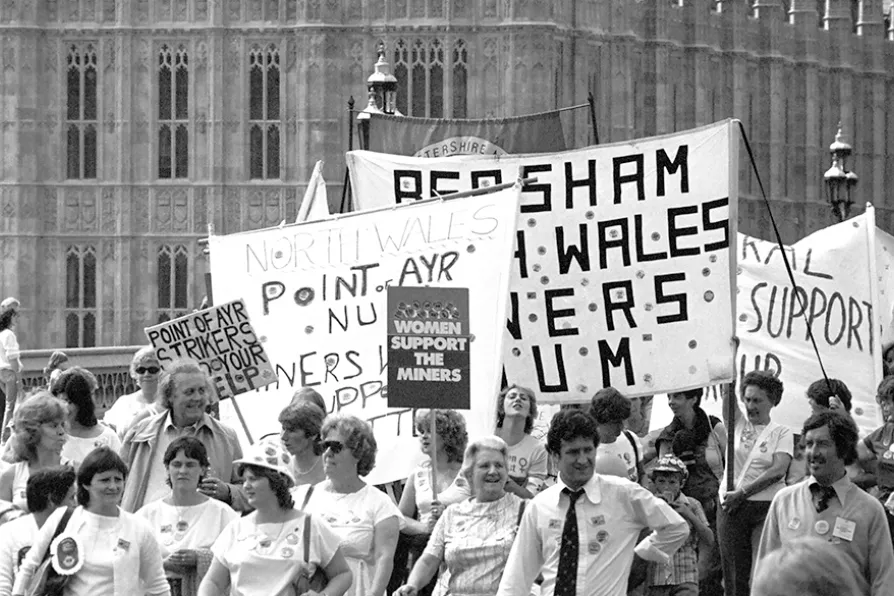The language of humiliation is a step towards a second civil war, argues RAMZY BAROUD

 WOMEN TO THE FORE: The Welsh contingent of miner’s wives and their supporters cross Westminster Bridge during a protest march enroute to a rally at Burgess Park, London on August 11 1984
WOMEN TO THE FORE: The Welsh contingent of miner’s wives and their supporters cross Westminster Bridge during a protest march enroute to a rally at Burgess Park, London on August 11 1984
AS A CHILD of the ’60s growing up in Ashington, Northumberland, my life was defined by coal. The entire community owed its existence to the mining industry, the schools I attended, the leisure facilities I used, the doctors’ surgeries and hospitals were all built by the miners.
Forty years ago, in February 1984 I was a mining craft apprentice at Ellington Colliery, just a few miles north of my home town. Having recently turned 21, I enjoyed the lifestyle afforded to me by a vibrant mining community that worked hard and played hard. While rumours of industrial strife persisted, I was very much unaware of the turmoil that soon was to engulf the industry I worked in. The next year would put immense strain on coalmining families and communities and have far-reaching consequences.
When the strike reached the Northumberland coalfield, I had a decision to make. As an indentured apprentice we were exempt from taking part in the strike and told by the union to attend work. My dad, a strident supporter of the National Union of Mineworkers, for the first time in his working life, advised against following the union’s line. He told me I should not be going to work; it was the best advice I have ever received.

A past confrontation permanently shaped the methods the state will use to protect employers against any claims by their employees, writes MATT WRACK, but unions are readying to face the challenge

The Home Secretary’s recent letter suggests the Labour government may finally deliver on its nine-year manifesto commitment, writes KATE FLANNERY, but we must move quickly: as recently as 2024 Northumbria police destroyed miners’ strike documents











